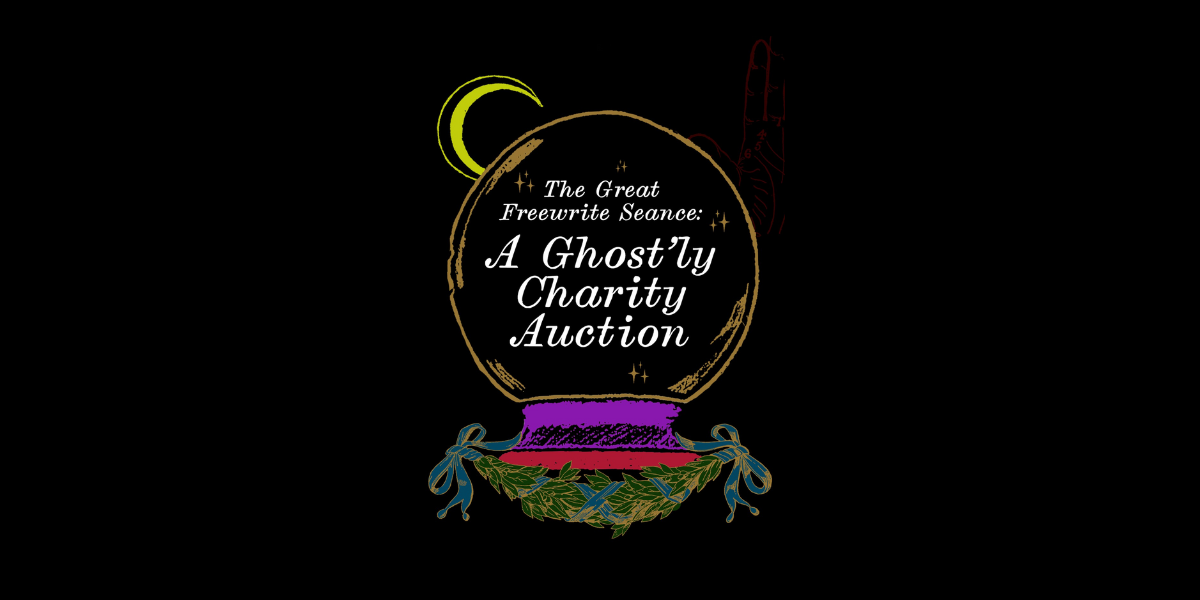Freewriters come from all backgrounds and walks of life. But they all have one thing in common: a passion for the written word.
Today, we're thrilled to introduce you to the winner of the Alpha Olympics giveaway: a freewriting, barefoot-running gentleman in remote Washington state.

When Michael Arau retired from the Navy, he wanted a quiet place to settle away from the commotion of daily life.
He discovered Suquamish, Washington, and a nice little piece of land off the beaten path. He and his wife liked the area and with their kids grown and gone it was a nice place for the two of them to settle. A place for Michael to shun technology, correspond with pen pals, and ... run barefoot?
Yes, Michael says, if you ever pass through Kitsap County, you'll spot him easily — he's the guy running down the road or trail with no shoes on.
"I guess some of us never grow up."
Join us for a chat with Michael about lessons we can learn from the past and living a writing life.
ANNIE COSBY: You call yourself a "pseudo luddite." What does that mean?
MICHAEL ARAU: As much as I like technology, it can get in the way, and if allowed, it can consume the user. Cell phones are a good example.
I am one who can easily leave my phone off and go about my business. Being connected is something relatively new to me. I am 70, so I remember when a phone was something attached to the kitchen wall and the whole family used it. Having a remote phone was something out of science fiction movies and Dick Tracy comics. If I wanted to talk to a friend, I got on my bicycle and popped over to pay a visit. I miss those days and do my best to emulate them — within reason.
One of my hobbies is corresponding in letters. I am one of the few people I know who can still write in cursive script, so I write longhand or with a mechanical typewriter.
But writing on my computer is impossible. I can’t focus because of all the distractions. Longhand is still a great way to write non-distracted, but Freewrite makes it more convenient and I can generate more words than I can with a pencil.
Hence, pseudo luddite. I still prefer the good ol’ days and the good ol’ ways, but with the right sort of technology — thank you, Astrohaus — in the right place, I can continue in my happy disconnected ways and that makes me more productive in the long run.
I remember when a phone was something attached to the kitchen wall and the whole family used it... If I wanted to talk to a friend, I got on my bicycle and popped over to pay a visit. I miss those days and do my best to emulate them — within reason.

AC: That's interesting because here at Freewrite, we love technology. I don't think anybody on the team identifies as a luddite. But we are hyper focused on the purpose of technology to add meaning to our lives — not take away from it. And too often, that's not the case. Do you find it easy or hard to sit down and write in today's world?
MA: I am very easily distracted. The computer is a major distractor. If I want to get anything done, I have to distance myself from it. It seems to beg for my attention.
Even things lying on my desk can take take my focus away. I start thinking about them and then something else and before you know it I am in Africa wondering how I got there!
(Read all about the effect of smart tech on the brain.)
I discovered Freewrite just prior to the pandemic. At the time, I had a house full of typewriters and an Alphasmart Neo. As much as I like writing longhand, the Neo worked well for on the go. There was nothing to take away my attention, and it was a lot easier to tote around than a typewriter!
When lockdown hit, a writer friend of mine — and penpal — told me he had a Freewrite he was going to sell and I mentioned my interest. I got his Gen 2 Smart Typewriter and have used it since.
The Freewrite blog refueled my interest in writing, and I began using the Smart Typewriter more often. When you came up with the summer writing challenge in June, I jumped in. I had no idea how it would inspire me to write more often using the Freewrite.
I haven’t missed a day in months, and my word count is over the top, and I don’t see that stopping.
I haven’t missed a day [writing] in months, and my word count is over the top, and I don’t see that stopping.
AC: What do you write?
MA: Mostly, I journal. I find that if I chronicle my day or aim for something in the day that seemed significant, I will often springboard to something else. It’s a lot like freewriting. I look at it as a sort of warm up to get “the little gray cells” to wake up.
Once the wheels get turning, I can let my thoughts fly and will turn that into something more creative and worth sharing.
AC: Do you have a writing routine?
MA: I tend to be at my best when I first get up. I don’t have the stamina to write all day. I’ll write for a half hour to an hour about whatever comes to mind. I do this everyday.
I also carry a pocket notebook with me. If something pops into my head or if something makes me go “hmmm…” I will write it down. Later, I can look through the notebook and expand those thoughts.
Writing on my computer is impossible.
I try to get some sort of physical exercise every day. I walk or run in the mornings, and I tend to commute to work on a bicycle. That opens my imagination to all sorts of things. I once saw an older gentleman scything high grass on the roadside adjacent to an old cemetery. That turned into a nice piece of flash fiction that I wrote up in no time at all when I got home from work.
I also carry a pocket notebook with me. If something pops into my head or if something makes me go “hmmm…” I will write it down. Later, I can look through the notebook and expand those thoughts.
AC: Are there any writers or books you’ve been heavily influenced by?
MA: Two sources that have inspired and educated me are Stephen King’s On Writing and in interview between Neil Gaiman and Tim Ferris.
And I read a lot of books from current authors, as well as literary fiction. I am a huge fan of John Steinbeck. What I like is the easy nature of his prose. When I read him, I feel like he is in the room telling his story to me, in person.
I also enjoy Tom Robbins, Carl Hiaasen, and Dave Barry. Authors I liked as a kid, and still do, are H.G. Wells, Jules Vernes, and Sir Arthur Conan Doyle.
AC: What’s your #1 piece of advice for writers new to writing on Freewrite?
MA: Stick with it. It takes some getting used to not having the page laid out in front of you to continuously monitor and edit. But that’s what makes the Freewrite cool.
Instead of a page, you have a sticky note. A little window to review through. At some point, the page goes away and the words flow uninhibited. Editing can come later once the story is out.
--
So there you have it, from a pseudo luddite in Washington state. You can follow along on Michael's writing — and barefoot running — journey at MichaelArau.substack.com.































